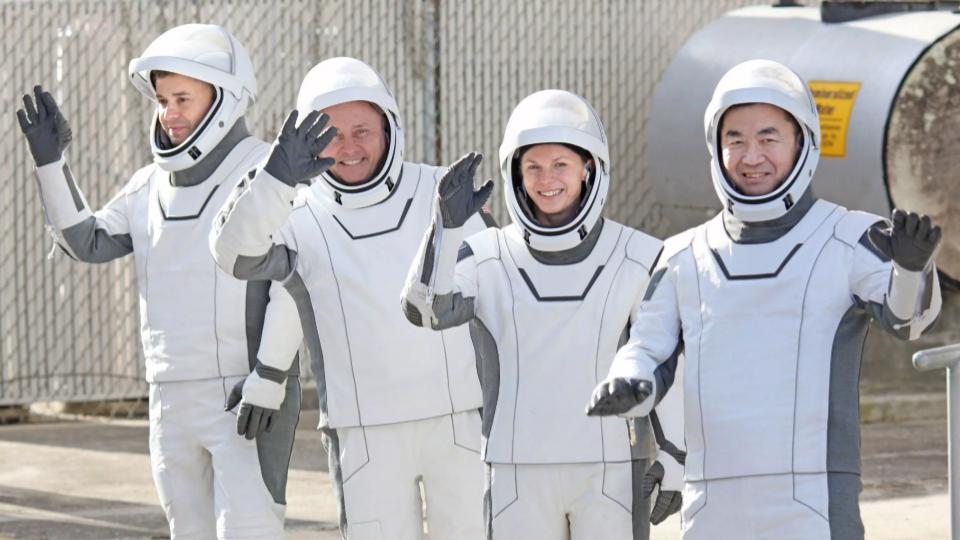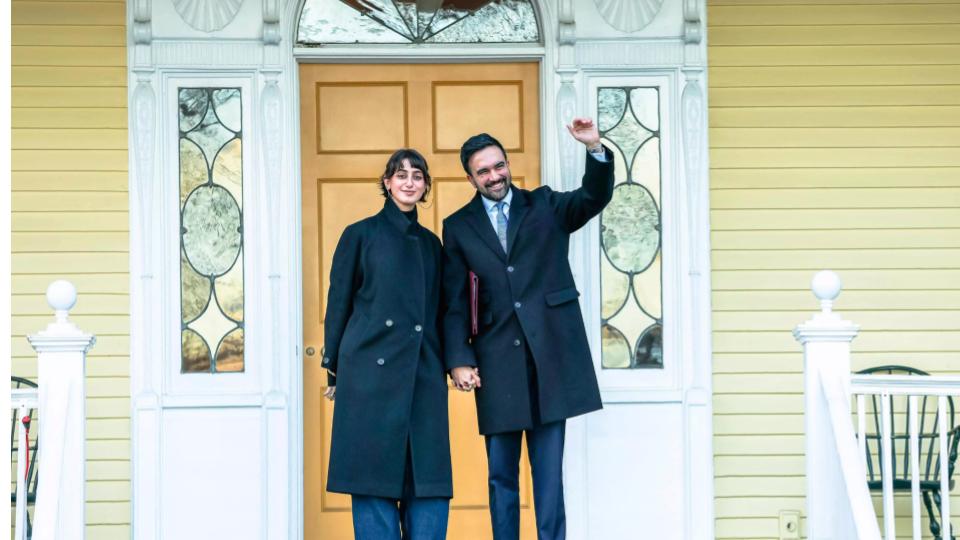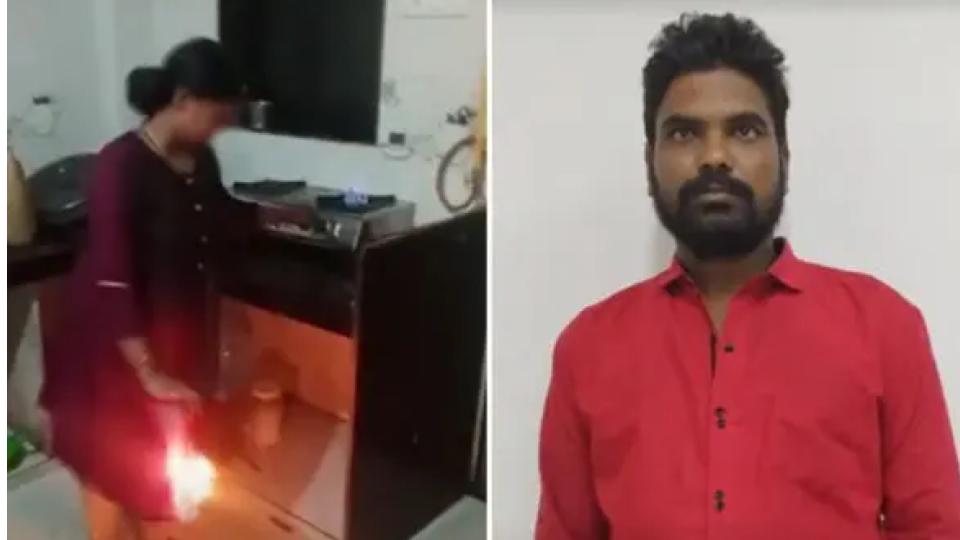Conjoined Connecticut twins show double-minded determination
Tue 25 Apr 2017, 15:38:28

NEW MILFORD, Conn. (AP) — With an eddy of leaves trailing behind them, Carmen and Lupita Andrade take off in their father's old truck, a couple of high school girls learning to drive.
They move in a herky-jerky motion around their backyard with their father, Victor, offering a bit of coaching in Spanish as they make their way past the chicken coop and back and forth across the bumpy yard.
"The reason I want to get my license is to be more independent," Carmen says, "so I won't have to rely so much on my parents."
In the waning mid-October afternoon sunlight, it could be just another teenage driving lesson, but Carmen and Lupita are far from ordinary 16-year-olds.
The girls are among the country's very few sets of conjoined twins. They are attached along their chest walls down to their pelvis where their spines meet. They each have two arms, but only a single leg, with Carmen controlling the right and Lupita, the left.
Only Carmen, who tends to be the more assertive and outspoken of the two, is really interested in getting her license, so she sits in the driver's seat with both hands on the wheel and her right foot — the one she controls — working the pedals. Lupita, who is squeezed between Carmen and the driver's door, doesn't see any reason to get a license if her sister has hers.
Bound together inextricably — with every movement demanding extraordinary coordination and cooperation — they wouldn't have it any other way at this point.
"We're so dependent on each other," explains Lupita, who doubts they could "get used to not being dependent on each other."
Most of the time, Carmen and Lupita are absorbed in teenage priorities like schoolwork and friends, but more daunting questions lie along the road ahead.
SHARED BODY, SEPARATE IDENTITIES
In a world that instantly sees them as different, Carmen and Lupita face imposing challenges that aren't nearly so visible.
Serious medical issues could one day mean delicate surgery or an oxygen tank for Lupita, whose curved spine is cramping her lungs. The girls also face fears that their family, who came from Mexico seeking medical attention for them when they were babies, might be forced to leave the U.S. if President Donald Trump does away with the work permit program that has allowed them to stay.
The girls each have a heart, a set of arms, a set of lungs and a stomach, but they share some ribs, a liver, their circulatory system, and their digestive and
reproductive systems. Years ago, they spent long hours in physical therapy, learning how to get up off their backs and sit and use their legs together. At the age of 4, they took their first steps.
reproductive systems. Years ago, they spent long hours in physical therapy, learning how to get up off their backs and sit and use their legs together. At the age of 4, they took their first steps.
When they were tiny, doctors considered separating them, but concluded it couldn't be done safely.
They have learned to balance and coordinate every move, bracing themselves at times to offset the strain of supporting two upper bodies on one set of hips and one pair of legs.
Theirs is a life lived in tandem that is so practiced, the girls say it's instinct now. When they are in a cafeteria, one will reach for lunch and it's almost always just what the other wants too; in the evening when they choose an outfit for school the next day, they seldom differ on what to wear.
"We kind of, like, have to agree," Carmen says. "It's obvious." Their mother, Norma Solis, buys two of the same tops, dresses and coats, and then has a friend sew them together, tailoring them to fit.
Often, they finish each others' sentences.
Describing how they handle the insensitive comments of strangers, Carmen said, "So if somebody asks us, like, if we're twins, either I or mostly Lupita would just respond ... "
"No, we're really close cousins," Lupita says.
But the twins also have markedly distinct personalities. Carmen is a strong student, witty, sharp-tongued and ambitious. Lupita is quieter, has trouble with reading comprehension and takes modified versions of tests, but like her sister can be quick with a pointed, often humorous remark.
"A lot of people don't notice, like, because when they first meet us, we kind of have the same reactions ... " said Carmen. "But our friends, once they get to know us, our friends literally tell us, 'You guys are so completely different,' and I'm like, 'Well, yeah. We're two different people.' "
The girls do find ways to assert their own identities. Carmen often wears make-up, applying eyeliner and mascara, while Lupita usually can't be bothered. And they may not be in the mood for the same music. "If we are listening to alternative rock," Carmen says. "Maybe I want to listen to (the group) Panic! at the Disco or she wants to listen to Fall Out Boy."
If she needs time alone, Lupita will go on their cellphone or computer; Carmen will stay up late scrolling through social media on the phone while her sister sleeps beside her.
Day to day, the twins' dreams and concerns are like those of any teenager.
No Comments For This Post, Be first to write a Comment.
Most viewed from International
Most viewed from World
AIMIM News
Latest Urdu News
Most Viewed
May 26, 2020
Can Lionel Messi's visit boost Indian football?
Latest Videos View All
Like Us
Home
About Us
Advertise With Us
All Polls
Epaper Archives
Privacy Policy
Contact Us
Download Etemaad App
© 2026 Etemaad Daily News, All Rights Reserved.





































.jpg)
.jpg)
.jpg)


